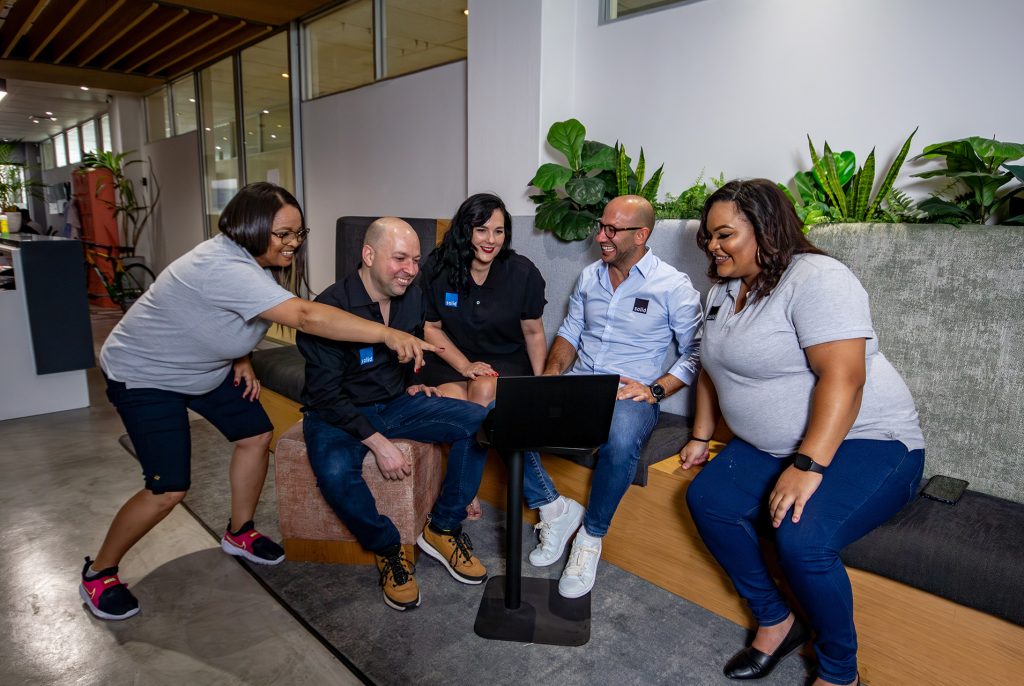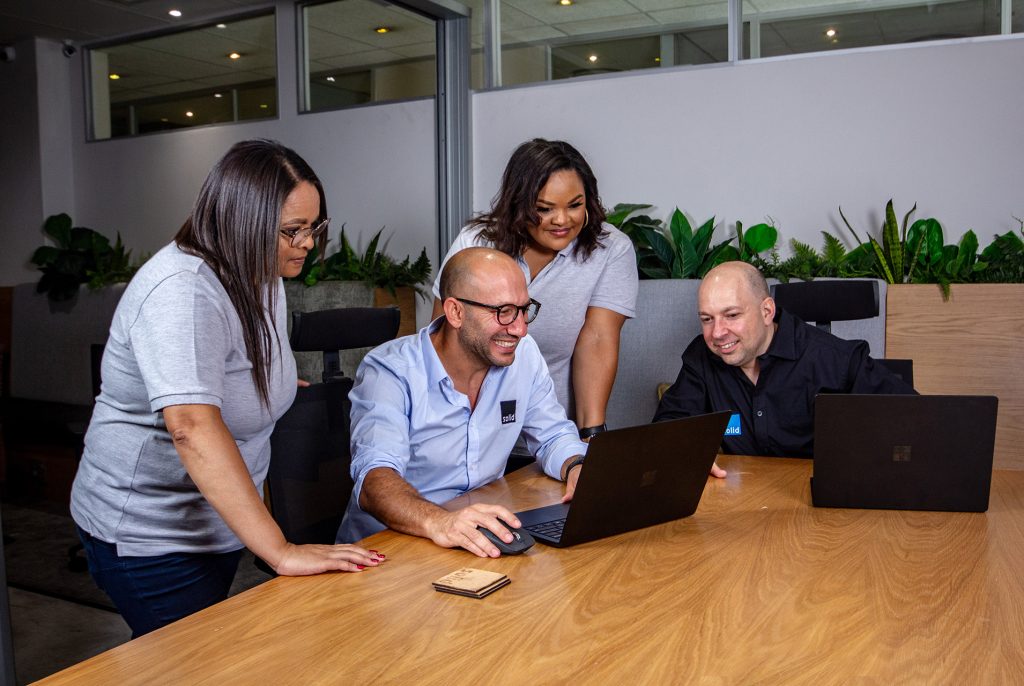
While AI as a buzzword has been doing the rounds over the past year thanks to the introduction of Chat GPT, Artificial Intelligence is hardly a new concept. And it’s one that Microsoft has been leveraging since the early ‘90s.
As AI has advanced over the decades, so have the ways in which it can be used to improve Microsoft services. I thought I’d take a look at just 8 Microsoft solutions that already incorporate AI, and how your business can use them.
8 Microsoft Apps That Use Artificial Intelligence
Because AI is such an over-arching term, it is often used in ways that people don’t even realise. Let’s dive into some of the ways that Microsoft has been adding AI to its services and solutions, starting with some of the most recent enhancements:
1. Bing Search
The launch of Chat GPT saw a huge jump in the world of Artificial Intelligence, and it didn’t take long for Microsoft to realise the benefit in investing in the platform. In fact, within months of Chat GPT launching, Microsoft had already incorporated it into Bing, their search engine alternative to Google. Now, when you head on over to Bing.com, you are greeted by an option to “Try the new Bing”, where it invites you to “Ask real questions. Get complete answers. Chat and create.”
This new way of searching, may be artificially intelligent, but it feels a lot more human. Instead of typing in keywords and getting thousands or millions of results, you ask questions and get answers that are based on insights that Bing has gathered from those results. It offers summaries of articles, making them quicker and easier to understand. And while this type of AI is still in its early phases, and is hardly perfect, with the potential for error, it is quickly advancing.
2. Microsoft Teams
While Microsoft has already announced the integration of Chat GPT into Teams, this isn’t the only way that Artificial Intelligence is being used on the platform. Teams had long had AI capabilities, which include automatically transcribing recorded meetings (and in a way that is incredibly impressive, given how complex transcription can be with varying accents and dialects), background noise suppression during calls, and smart camera framing which ensures that you are always front and centre during video meetings.
3. Office 365
From Word offering you advice on your grammar, spelling and style, to the Analyze data button in Excel, Office 365 is filled with features that leverage Artificial Intelligence to help you work in more productive and efficient ways. But then, this is nothing new. Even back in 1995, Word featured a little AI helper known as Clippy, who would offer writing tips and advice.
4. Viva Insights
You know that old saying, “Time is money”? Well, it may be an age-old idiom, but it hasn’t lost any of its relevance. Knowing where your time is being spent is critical to working more productively, and Viva Insights are all about helping you figure out exactly where your time is being wasted. But the platform does so much more than that as well. It can help your team members to feel more connected to your company culture, and help them to make health and wellness a priority, to set aside time to focus and work more efficiently. And this is all thanks to the Artificial Intelligence that the platform uses to analyse data about the way you work.
Viva Insights is all about the ways that individuals work, and how they can each use their time more efficiently to get more done in a day. Delve, on the other hand, takes the same data and applies it to your business as a whole. It helps business owners and managers to understand where their teams’ time is being spent, and how it can be optimised. It helps you to see how connected your humans are to each other, where they are interacting and how.
While Teams may be the go-to for video conferencing and meetings, that doesn’t mean that Skype has become irrelevant. For one-on-one calls that are not necessarily work related, or for meeting with people who don’t have access to Teams, Skype is still a great tool. And the way that it uses AI to process your background by blurring it or applying virtual scenery, to provide instant transcription for live captions, and to translate where needed, all makes for a seamless video calling experience.
File storage and management is a critical skill in today’s cloud-based world. Being able to quickly and easily find relevant documents to be worked on can save inordinate amounts of time, especially when you’re working on documents as a team. And that’s not even taking into consideration the benefits of being able to separate out sensitive data and apply strict security protocols to it.
SharePoint is a fantastic tool for storing and working on files, and the way that it uses AI to simplify the process of file management – from tagging and sorting, to searching and form processing – makes it far easier to be productive, and to work collaboratively on projects.
Where SharePoint leverages Artificial Intelligence to boost collaboration, OneDrive makes use of AI to simplify the storage of personal documents, files and images. Take, for example, the tagging of photographs. OneDrive uses AI to process the images that you store in the cloud, recognise the content within them, and allow you to search for specific people within those photos, for example.
Helping You To Leverage AI In Your Day-To-Day
I may have only mentioned 8 Microsoft apps in this article, but just about every Microsoft solution uses Artificial Intelligence to make your life easier, to secure your business, and to ensure that you and your teams are able to work as productively, efficiently, and securely as possible. While you may not even realise the benefits that AI is adding to your day-to-day work, just by making use of Microsoft services you are embracing AI-enhanced technologies.
So what should your next step be? By learning more about the advantages of Microsoft services, and using them to their fullest potential, you can find yourself working smarter, rather than harder. Which in turn will see you completing tasks more quickly, leaving you with more time to spend with the people that mean the most to you. Which is the ultimate goal, after all.





